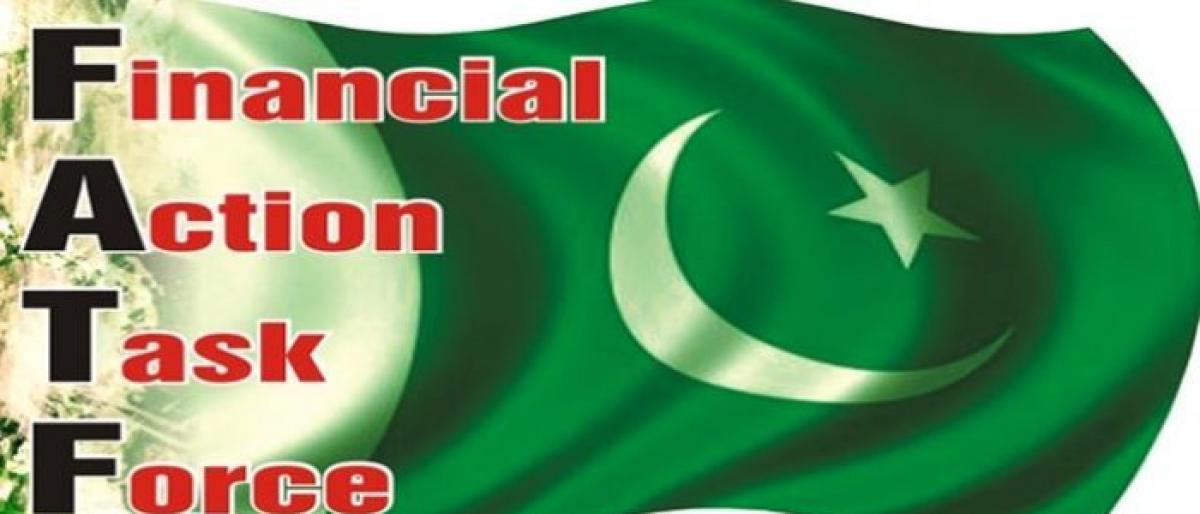Terror haven earns great infamy again

Finally, it\'s the \'grey list\' for Pakistan on the Financial Action Task Force (FATF), an intergovernmental organisation founded in 1989 on the initiative of the G7 to develop policies to combat money laundering. Pakistan was officially placed on a terrorism financing watchdog’s grey list on Wednesday,
Finally, it's the 'grey list' for Pakistan on the Financial Action Task Force (FATF), an intergovernmental organisation founded in 1989 on the initiative of the G7 to develop policies to combat money laundering. Pakistan was officially placed on a terrorism financing watchdog’s grey list on Wednesday, despite the country’s huge efforts to avoid the labelling. The FATF took this harsh measure, arguing that Pakistan had failed to act against terror financing on its soil. FATF is tasked with combating terrorist financing and money laundering.
The decision to place Pakistan on the global money-laundering watchdog’s grey list was made during its plenary meeting in February this year. As the FATF plenary began its proceedings on Wednesday, the Pakistani delegation apprised the watchdog of steps Islamabad had taken to stem money laundering and terror financing. Earlier reports from Paris had indicated that Pakistan may get more time to take measures to implement the FATF’s anti-money laundering and terrorist financing regulations.
In the end, Pakistan was officially placed on the infamous 'grey list,' which places Pakistan in poor light before all nations, organisations and investors. The watchdog during its deliberations since a preliminary decision during a plenary meeting in Paris found that Pakistan had failed to act against terror financing on its soil.
Being placed on the 'grey list' means that Pakistan's financial system will be designated as posing a risk to the international financial system because of "strategic deficiencies" in its ability to prevent terror financing and money laundering. Pakistan will be directly scrutinised by the financial watchdog until it is satisfied by the measures taken to curb terror financing and money laundering. However, certain things are not clear with the FATF practices.
It does not specifically lay down the 'do’s and don’ts' for such countries as Pakistan. Even if it does, compliance is a factor that seems to be questionable as earlier sanctions and earlier listings similarly have not prevented Pakistan from funding and running terror ops from its soil, especially against India. Secondly, whenever, such listing is made or someone questions Pakistan, it diverts attention to Balochistan and Afghanistan to claim victimhood and blame India (of course, unsuccessfully so far).
Entire world knows how it harbours criminals such as Hafiz Sayeed who keeps simply switching the organization's name and continues roaming around Pakistan freely. Proscribing key groups and seizing their assets is crucial to FATF rulings. Pakistan had spent three years on the 'grey list;' between 2012 and 2015 without the designation affecting its ability to float international bonds, borrow for multilateral bodies, receive or send remittances or conduct international trade even according to Pakistani government.
In effect, the FATF listing at best could embarrass Pakistan internationally if it is sensitive to such feelings which it does not have. It is only a matter of additional cost to many external sector transactors, knowledgeable ones know. Indian government's lobbying in this regard must be appreciated as even China, to which Pakistan was clinging for support along with Turkey, withdrew from the scene.














